5 unsung heroes who defied expectations and shaped history
Laurel Thatcher Ulrich first coined the phrase “Well behaved women seldom make history,” in her academic journal “Vertuous Women Found: New England Ministerial Literature, 1668-1735,” in 1976, and since then the phrase has been reused by countless trailblazing women who have been unafraid to push boundaries.
Despite women making up half of the population, they only occupy 0.5% of recorded history. To understand why, we must look back at the pre-historic world where 90% of figurines made from 40,000BC until 5,000BC, the emergence of modern civilisation, portray women. Despite our presence in these early cultural depictions, we start to disappear once truly recorded history begins.
At the birth of civilised society women had great status in sophisticated settlements, however their power diminished when these civilisations wanted to expand and were thus militarised. It is at this point that the power balance shifts, and the physical survival of communities, expansion and success laid with the military, and therefore with the men.
There are so many inspiring women from history – as an IT Advisory Consultancy Ada Lovelace is an obvious choice since her algorithm for Babbage’s Analytical engine result in her being the first computer programmer, however below are a few lesser known women we want to celebrate.
Mary Wollstonecraft (1759-1797) was an English writer and a passionate advocate of educational and social equality for women. She outlined her beliefs in ‘A Vindication of the Rights of Woman,’ (1792), considered a classic of feminist writing. Wollstonecraft’s vision about equal education for women was underpinned a belief that political change was essential for the radical reform of national educational systems. Her belief that such change would benefit all society and increase productivity was unique at the time. Many of us support modern day initiatives such as Stemettes which works to inspire and support girls, young women and non-binary people in Science, Technology, Engineering, Arts and Maths careers. The legacy of trailblazers such as Wollstonescraft lives on in our modern day education systems – and is in stark contrast to parts of the world where women are still denied access to equal education. The Nobel prize-winning Malala Yousafzai is a modern day female education activist who keeps Wollstoncraft’s flame burning bright hundreds of years later.
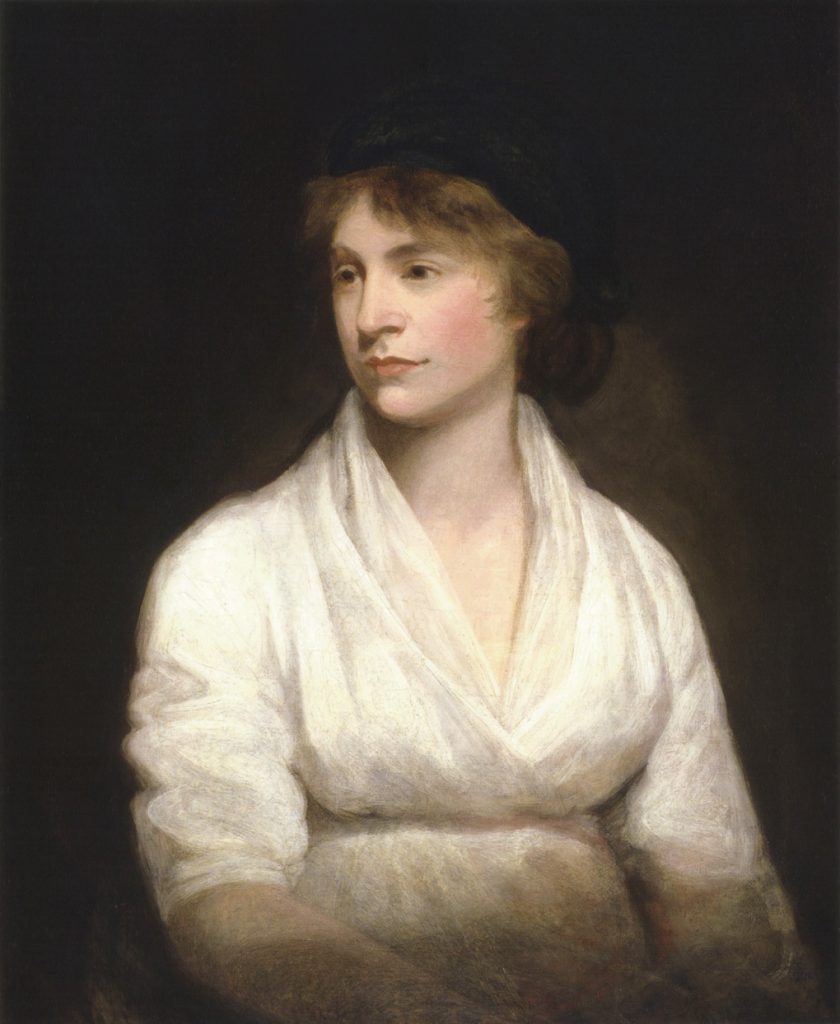
Mary Wollstonecraft, By Kyra Smith
Milunka Savić was a Serbian woman who fought in the Balkan Wars and World War I, disguising herself as a man to serve on the front lines in place of her tuberculosis-suffering brother after he was conscripted. She earned numerous military decorations for her bravery and courage, through which she saved the lives of many of her fellow soldiers, including both France’s and Serbia’s highest military honours twice each. Savić’s determination and commitment to her self-appointed duty, in the face of gender discrimination, make her a true inspiration to all. Her success in an exclusively male profession serves as a reminder that gender should not limit one’s ability to contribute in any capacity, and that it’s the strength of one’s resolve that determines their ability to perform in daunting situations. Personally, I admire Milunka Savić not for her aptitude for combat, but for her unrelenting selflessness and humility. She continually put the needs of others above her own; her brother’s, her fellow comrades’ and her community’s. After World War 1, she was offered a French military pension and a comfortable home in the French countryside. Instead, she moved back to Belgrade, adopted three young girls who had been orphaned by the war, served the rebuilding community as a postal worker and faded into civilian life, her heroics forgotten.
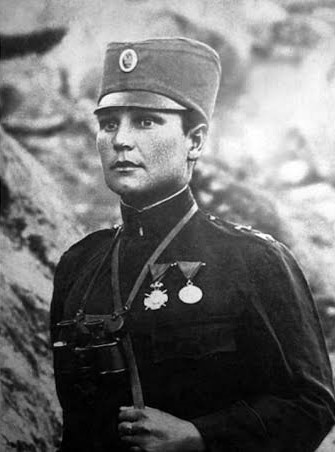
Milunka Savic, by Garrick Bainbridge
Catapulted into the global spotlight in the book and later film “Hidden figures,” Katherine Johnson would have probably remained relatively unknown should Margot Lee Shetterly not have written about her career. It wasn’t until she was 97 years old that Barak Obama awarded her with the Medal of Freedom in 2015 for being a pioneering example of African American women in STEM. Dubbed “the human computer,” NASA have a lot to thank Johnson for. In fact, without her they probably wouldn’t have won the space race. Her body of achievements are impressive by today’s standards, however at a time when women in the workplace were uncommon, black women were not allowed to vote, and racial segregation prevailed, her success in the face of adversity is truly remarkable. I was moved by Johnson’s story because instead of letting societal norms dictate her path in life, her unwavering commitment to perusing her passion for mathematics broke through the barriers she and all other black women were confined by. She did this to satisfy her own intellectual curiously and to prove that anyone, regardless of gender or race, was capable of furthering academia and human invention.
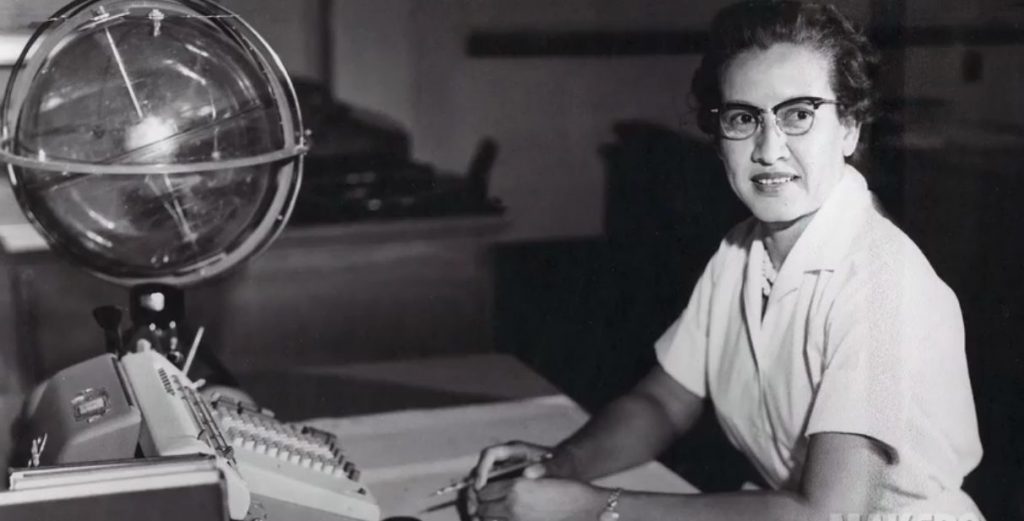
Katherine Johnson, by Tiffany Roberts
My great grandfather was one of the founding members of Pakistan as they parted away from the British Indian empire, providing independence and freedom for so many. My Pakistani heritage, culture and background has always played a large part in my day-to-day life. From the values I was raised with to the traditions I follow.
A figure that has predominantly stood out since the inception of Pakistan has been Benazir Bhutto, the first female prime minister of Pakistan and that of the Muslim world. Her influence and ambition to bring true democracy and liberalisation to Pakistan was ever present. Bhutto’s eminence inspired and motivated many women to participate in activities outside of the home and to become better educated; directly encouraging many women within my family. While in office, she brought electricity to the countryside and built schools all over the country. She made hunger, housing, and healthcare her top priorities, and looked forward to continuing to modernize Pakistan. Bhutto also fought for greater rights for women by repealing rights that restricted their freedom. Despite the controversies and issues Bhutto faced, she stood out as a figure for women in a country with many traditional values, pioneering for modernity and greater equality and to this day continues to motivate many in the Eastern world.
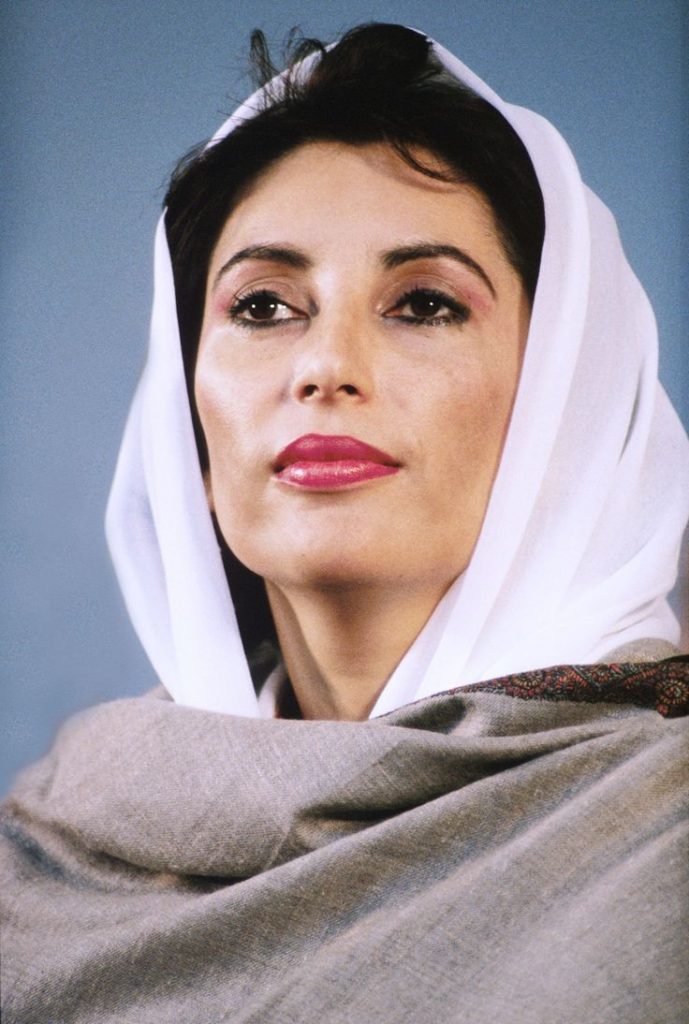
Benazir Bhutto, By Anis Hasan
Early on in my career I watched Madeleine Albright’s TED interview on being a woman and a diplomat. It had an enormous impact on me to hold my own at a table at a time when I was managing a data centre migration and was the only woman, the only immigrant and at least 50% younger than everybody else. At the interview, Albright shared that at her first UN Security Council meeting, she was the only woman in a room with 14 men and this is when she had a breakthrough thought: “If I do not speak today the voice of the USA would not be heard”. Since then, in tricky situations I subconsciously replaced “voice of the USA” with voice of “project X” until eventually it just became “my voice”…because it also deserves to be heard. Albright’s interview is full of good-hearted humour that motivates and achieves results; she got together the G7 (that’s Girls 7 or 7 permanent representatives to the UN in the 90s, just a 3% proportion of the total representatives), they lobbied for the women’s issues and got 2 women judges onto the War Crimes Tribunal who declared rape to be a weapon of war. The conversation is full of golden nuggets like “guilt is every woman’s middle name”, “there is a special place in hell for women who don’t help each other” which prepared me for future challenges. Also, Albright got me into brooches.
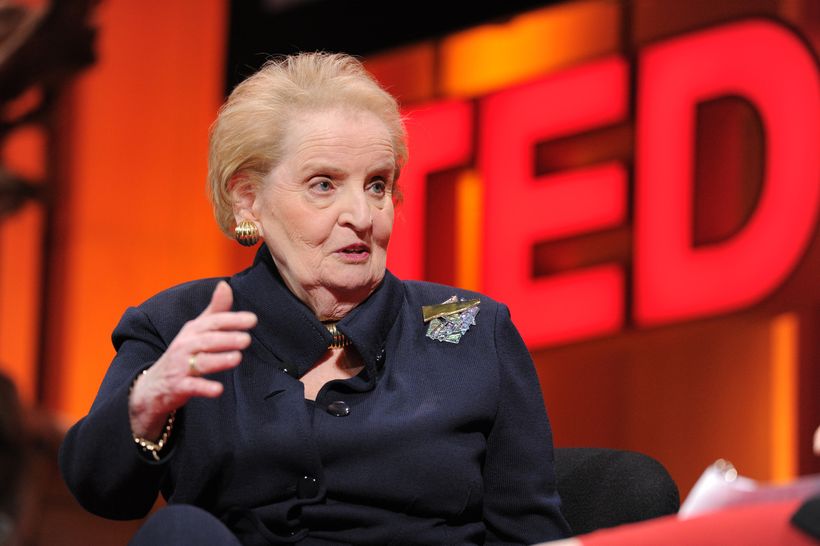
Madeleine Albright, by Val Yuskevych

